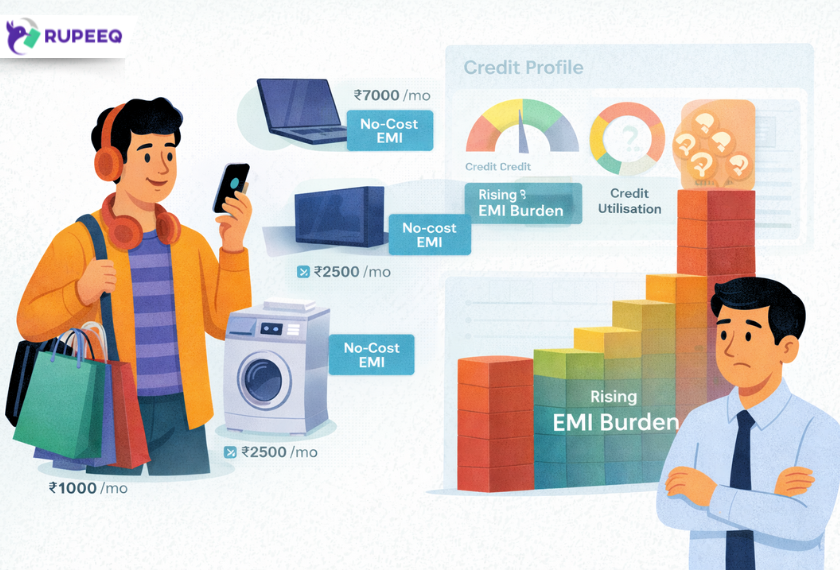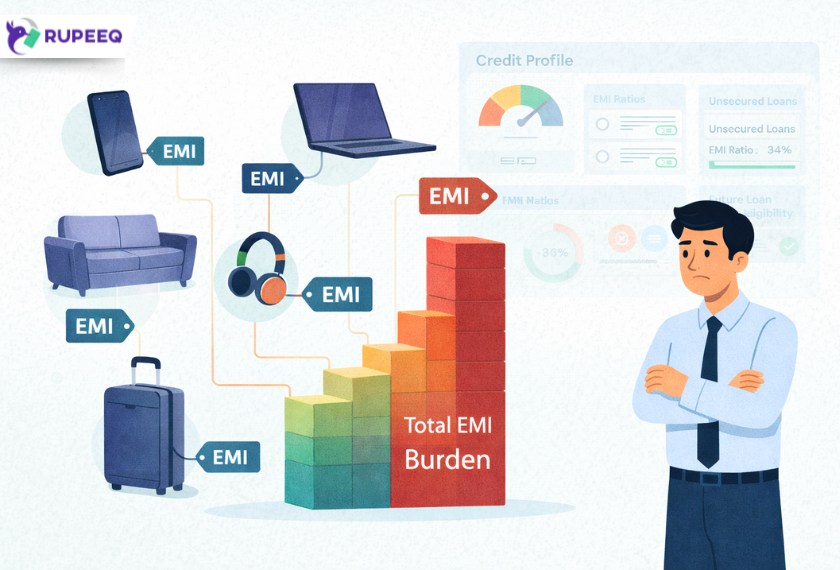Facing a loan rejection due to a poor credit score can be discouraging, but it’s a hurdle you can overcome. Improving your credit score is crucial to becoming a stronger loan candidate. This guide will help you understand practical steps to boost your credit score, segmented into two main scenarios: credit scores less than 600 and scores between 600 and 700.
Understanding Your Credit Score Situation
Knowing where you stand is the first step to making improvements. Let’s break down what actions you can take based on your credit score range.
Case 1: Credit Score Less Than 600
This category can be split into two distinct situations: having no credit score or having a very low score (upto 600).
1. If You Have No Credit Score (Score: 0)
Starting with no credit history can be as challenging as having a poor one. Here’s how to establish credit from scratch:
- Open a Secured Credit Card: A secured credit card requires a deposit, acting as collateral. Using it responsibly can help you start building credit.
- Take a Small Personal Loan: Some financial institutions offer small loans to first-time borrowers. Repaying this loan on time will help you build your credit profile.
- Become an Authorized User: If someone in your family has a good credit history, being added as an authorized user on their credit card can boost your score.
Example: Aman, who had no credit history, used a secured credit card for essential purchases and paid his balance in full each month. By simply doing this, he could establish his credit profile in as little as six months.
2. If Your Credit Score Is Below 600
A score under 600 indicates serious credit issues. Here are ways to repair it:
- Review Your Credit Report for Errors: Errors in your credit report could be hurting your score. Carefully review your report and dispute any inaccuracies.
- Pay Down Existing Debt: High credit card balances negatively impact your score. Focus on paying down debt, especially high-interest accounts.
- Set Up Automatic Payments: Missing due dates can severely harm your score. Setting up automatic payments can ensure timely payments.
RupeeQ Tip: Use tools to monitor your credit report regularly and catch errors early. Checking your credit score for free with RupeeQ ACE is a safe way to do this without impacting your score.
Case 2: Credit Score Between 600 and 700
If your score falls within this range, you’re in a better position but still need improvements to get favorable loan terms.
1. Manage Credit Utilization
- Keep Utilization Below 30%: Use less than 30% of your available credit limit. If possible, aim for under 10% to boost your score more significantly.
- Request a Credit Limit Increase: If your financial situation has improved, consider asking for a higher credit limit. This can lower your credit utilization ratio, but only if you don’t increase spending.
Example: Maya had a score of 650 and was using 75% of her credit limit. By reducing her utilization to 25%, her score improved by 40 to 50 points in three months.
2. Diversify Your Credit Portfolio
Having a mix of different types of credit, such as credit cards, loans, and auto financing, can benefit your score.
- Consider a Personal Loan for Credit Diversification: If you lack diversity in your credit profile, a small personal loan can be helpful. Ensure you make payments on time.
- Avoid Applying for Too Much Credit at Once: Each loan or credit application results in a hard inquiry. Spread out your applications to avoid negatively impacting your score.
General Strategies to Improve Your Credit Score
Whether you’re in the lower or mid-score range, these strategies can make a difference:
Pay Bills Punctually
Your payment history makes up 35% of your credit score. Set up reminders or automate your payments to ensure you’re never late.
Review Your Credit Report for Accuracy
Check for any errors that could drag your score down and dispute them as necessary.
Keep Old Credit Accounts Open
The age of your credit accounts affects your score. If possible, keep older accounts open, as they contribute to a longer credit history.
Limit Hard Inquiries
Each time a lender checks your credit for a loan or credit application, it’s recorded as a hard inquiry, which can lower your score. Be strategic about when you apply for credit.
📥 Get Free Instant Credit Report
Conclusion
Improving your credit score after a loan rejection isn’t an overnight process, but consistent and responsible credit habits will help you see progress over time. Remember to track your improvements and stay committed to your financial goals. Even small steps can make a big difference in your financial health.







